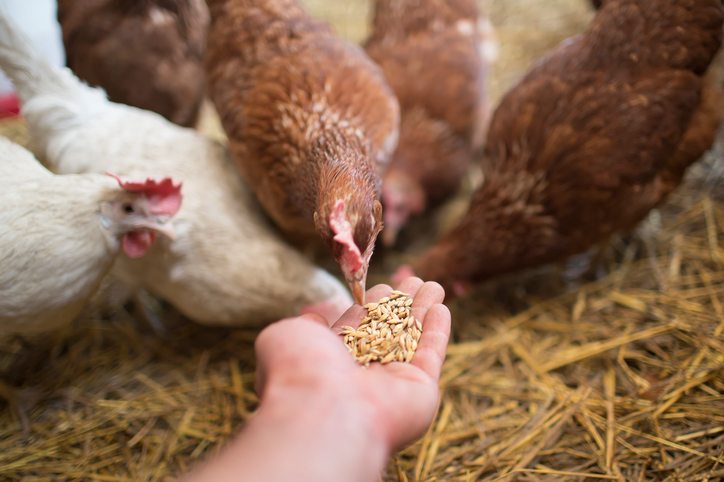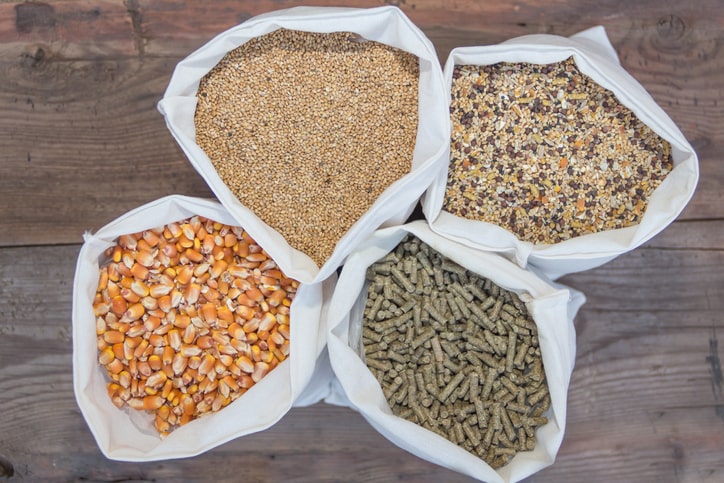Are you a new chicken keeper or an experienced poultry farmer looking for the best chicken feed? Choosing the right feed for your chickens is crucial for their health, productivity, and overall well-being. In this comprehensive guide, we will delve into the essential aspects of chicken feed, helping you make informed decisions for your flock.

Understanding Chicken Feed
Chicken feed plays a pivotal role in ensuring that your chickens are healthy, productive, and happy. Knowing what is best chicken feed means understanding the different types of feeds available and their nutritional benefits.
The Importance of Quality Feed
Quality feed directly impacts the health and productivity of your chickens. It ensures they receive the necessary vitamins, minerals, and proteins for growth and egg production. A well-fed chicken is a happy chicken.
Types of Chicken Feed
- Starter Feed – Perfect for chicks; high in protein.
- Grower Feed – Suitable for pullets; balanced protein and energy.
- Layer Feed – Ideal for laying hens; rich in calcium.
- Broiler Feed – Best for meat chickens; high energy content.

Ingredients to Look For
When searching for what is best chicken feed, focus on feeds that provide balanced nutrition. Key ingredients usually include:
- Corn – A high-energy grain.
- Soybean Meal – An excellent protein source.
- Calcium – Essential for eggshell formation.
- Vitamins and Minerals – For overall health.
Avoiding Harmful Ingredients
Not all feeds are created equal. Some might contain harmful additives. Always check for:
- Pesticides
- Antibiotics
- Hormones

Homemade vs. Commercial Feed
Advantages of Homemade Feed
Making your own chicken feed allows for customization to meet the specific needs of your flock. It’s a great option if you have access to quality ingredients.
Advantages of Commercial Feed
Commercial feeds are formulated by experts to provide balanced nutrition, often more convenient and reliable for new poultry enthusiasts.

Feed for Different Chicken Breeds
Different chicken breeds have varying dietary needs. It’s important to choose feeds that cater to those requirements. Learn more about breeds from this Wikipedia page.
Layer Chickens
Layer chickens benefit from feed rich in calcium to support eggshell production.
Broiler Chickens
Broiler chickens need high-energy feeds for rapid growth.
Dual-Purpose Breeds
Dual-purpose breeds, such as the Rhode Island Red, benefit from balanced feed that supports both growth and egg production.
Feeding Schedule and Amount
Understanding how much and when to feed your chickens is crucial. Overfeeding can lead to obesity, while underfeeding can cause malnutrition.
Chicks
Feed chicks with starter feed from day one to eight weeks.
Pullets
Switch to grower feed from eight weeks to laying age.
Laying Hens
Provide layer feed once they start laying eggs.
Additional Supplements
To ensure optimal health, consider providing supplements such as oyster shells for calcium and grit to help with digestion.
Seasonal Feeding Tips
Adjust your chickens’ diet based on the season. In winter, they may need more energy, while in summer, focus on hydration and cooling foods.
Winter Feeding
Provide high-energy feeds like corn to help chickens maintain their body temperature.
Summer Feeding
Offer fresh fruits and vegetables to keep chickens hydrated.
Common Feeding Mistakes
Avoid these common feeding mistakes to maintain a healthy flock:
- Overfeeding treats
- Feeding moldy feed
- Ignoring dietary needs based on age and breed
Cost Considerations
Quality feed can be expensive but consider it an investment in your chickens’ health and productivity. Opt for bulk purchases to save on costs.
Reviewing Feed Brands
There are many reputable brands offering quality chicken feed. Some top brands include:
- Purina Layena
- Nutrena NatureWise
- DuMOR
Where to Buy Chicken Feed
You can purchase chicken feed from local farm supply stores, online retailers, and co-ops. Always compare prices and read reviews.
Transitioning Feeds
When switching feeds, do it gradually to avoid digestive issues. Mix the new feed with the old one over a week.
Expert Tips for Best Results
Follow these expert tips for the best results:
- Always provide fresh water
- Store feed properly
- Monitor your flock’s health regularly
FAQs
What type of feed is best for chicks?
Starter feed is the best option for chicks as it is high in protein and essential nutrients.
Can I make my own chicken feed?
Yes, making your own feed allows for customization to meet your flock’s specific needs.
How often should I feed my chickens?
Chickens should have constant access to feed, but you can control the amount by feeding them twice a day.
This which chicken what breed best tasting articles might give you more insights about chicken breeds and their needs.
As an Amazon Associate, I earn from qualifying purchases.









